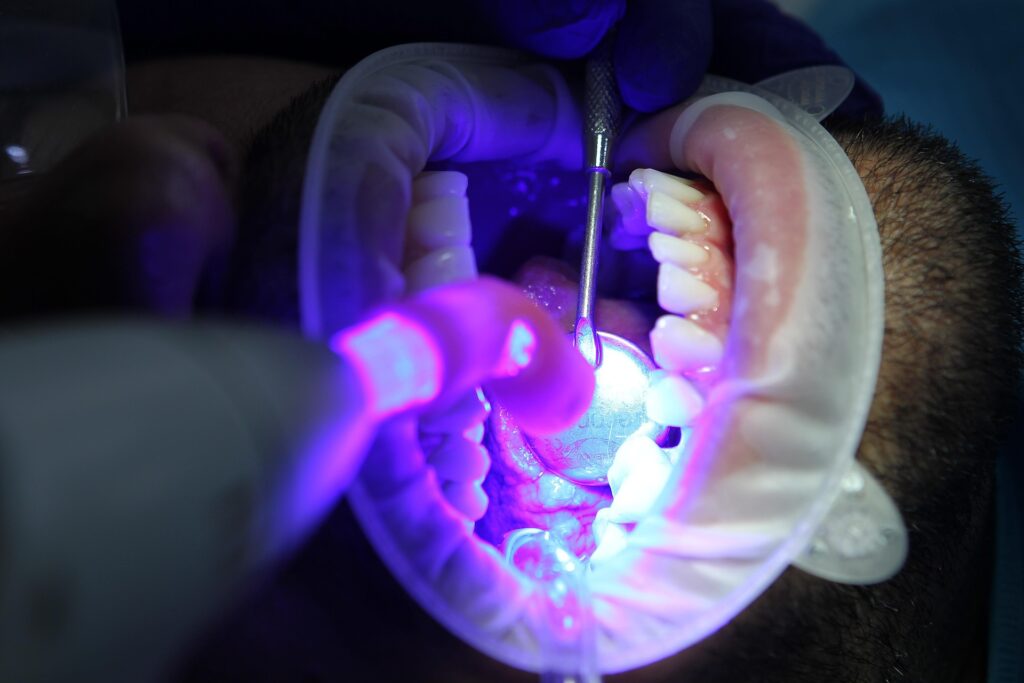
Professional teeth whitening often promises dramatic results in a short amount of time. For people who want a brighter smile, it sounds like a simple fix. But with cheaper over-the-counter options available, it’s natural to wonder if the higher cost of professional treatment really pays off. Let’s take a closer look at what you’re actually paying for and whether it’s worth the investment.
What Professional Teeth Whitening Includes
Unlike drugstore whitening kits, professional whitening isn’t a one-size-fits-all treatment. Dentists evaluate your teeth, discuss your desired shade, and use higher-strength whitening agents that you can’t get on your own. These treatments are performed in-office, often in under an hour, or with take-home kits that still involve dentist supervision.
Common Professional Whitening Methods
- In-office bleaching uses concentrated peroxide gels, often paired with LED or laser light to speed up the reaction. This leads to faster, visible results.
- Custom take-home trays are made to fit your teeth perfectly, holding a safe but powerful gel evenly over your teeth. These are worn over several days or weeks, usually for a few hours a day or overnight.
How Much Does It Cost?
Professional whitening costs vary based on location, the dentist’s experience, and the method used. On average:
- In-office whitening typically costs around $500 to $1,000 per session
- Custom trays with take-home gel cost between $250 and $500
Compared to drugstore kits priced around $20 to $100, the price gap is wide. But there’s more to consider than just the numbers.
What You’re Really Paying For
Stronger Ingredients, Faster Results
Over-the-counter products have a low concentration of peroxide—usually between 3 to 10 percent. Dentists use concentrations up to 40 percent. That means in-office results are quicker and often more noticeable after a single visit.
Customization and Safety
Dentists don’t apply bleach to unhealthy teeth. They examine your mouth to make sure it’s safe to proceed. If you have cavities, gum problems, or tooth sensitivity, they will suggest fixing those first. This added care helps prevent damage and discomfort.
Longer-Lasting Results
Store-bought kits often fade faster, especially if you drink coffee, red wine, or soda regularly. Professional treatments, especially when followed with custom trays for maintenance, can keep your teeth whiter for up to two or three years.

What Are the Downsides?
Cost
The biggest drawback is the price. It’s a significant upfront expense. Not all insurance plans cover cosmetic procedures, so most people pay out of pocket.
Sensitivity
While professionals use protective measures, the strong bleaching agents can still cause sensitivity. Most people experience temporary discomfort, especially to cold air or drinks. Dentists may recommend special toothpaste to reduce this.
Not Permanent
Whitening results don’t last forever. Lifestyle habits and natural aging can cause staining again. You might need repeat treatments, which add to the long-term cost.
Is It Better Than DIY Kits?
Convenience
Store kits are easy to buy and use, but they often require longer usage periods to see results. Whitening strips or trays may not fit properly, causing uneven whitening or irritation to gums.
Results
DIY methods might only lighten teeth by one or two shades. Professional whitening can lift your shade five to eight times lighter in one visit.
Risk of Misuse
People often overuse store kits hoping for better results. This can damage enamel or irritate gums. Without dental guidance, it’s easy to go too far or miss underlying dental problems.
Who Should Consider Professional Whitening?
- People with deep stains that don’t respond to store products
- Those who want fast results for an event, like weddings or photoshoots
- People who have tried drugstore kits but weren’t happy with the outcome
- Those with sensitive teeth who want supervision during the process
Who Might Skip It?
- People happy with a natural shade of white
- Budget-conscious individuals who are okay with slower progress
- Those with dental restorations like crowns or veneers, which don’t respond to whitening
Tips to Make Whitening Last Longer
Even if you go the professional route, you still need to maintain your results. These habits help extend the brightness of your smile:
- Brush twice daily using fluoride toothpaste
- Avoid food and drinks that stain teeth, like coffee, tea, and wine
- Rinse your mouth or brush soon after eating or drinking stain-causing items
- Visit your dentist for routine cleanings
- Use touch-up kits provided by your dentist if needed
Conclusion
So, is professional teeth whitening worth the cost? It depends on your goals and expectations. If you want fast, noticeable results and are willing to pay for safety and effectiveness, then yes—it’s often worth it. You’re not just paying for whiter teeth but also for professional care, a customized plan, and longer-lasting results. If budget is your main concern and you’re fine with subtle changes, store kits can still help.
Talk to a dentist before starting any whitening routine. They’ll help you find a safe and effective option that fits your smile and your wallet.
Schedule Your Appointment
Experience compassionate, high-quality dental care with Dr. Morris and our dedicated team. Whether you’re a new or returning patient, we’re here to assist you. To schedule an appointment or inquire about our services, please call us at (301) 299-4112. Alternatively, you can reach out through our online contact form.
